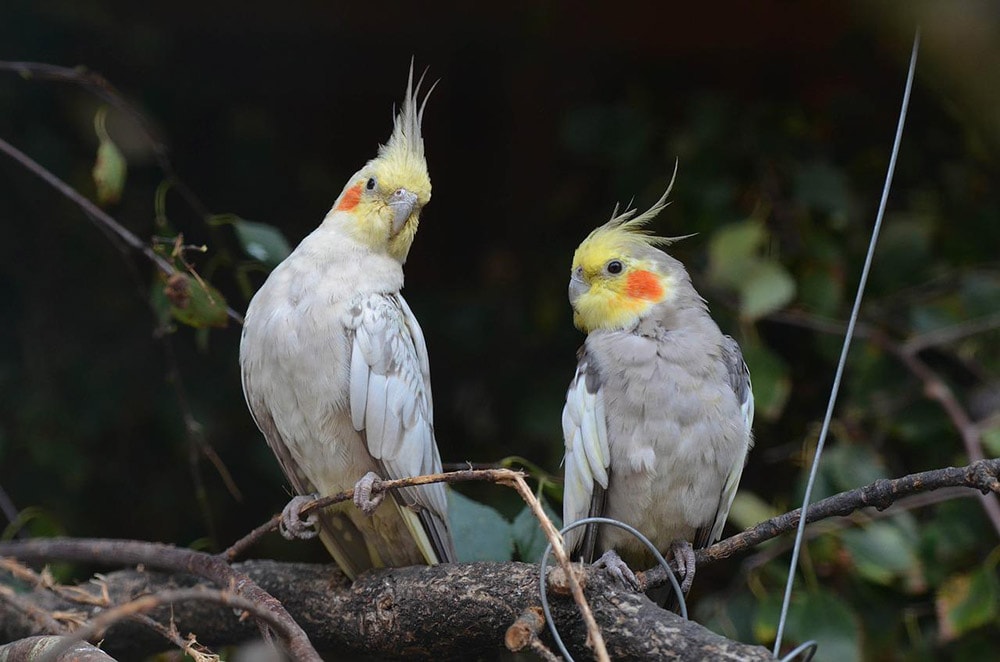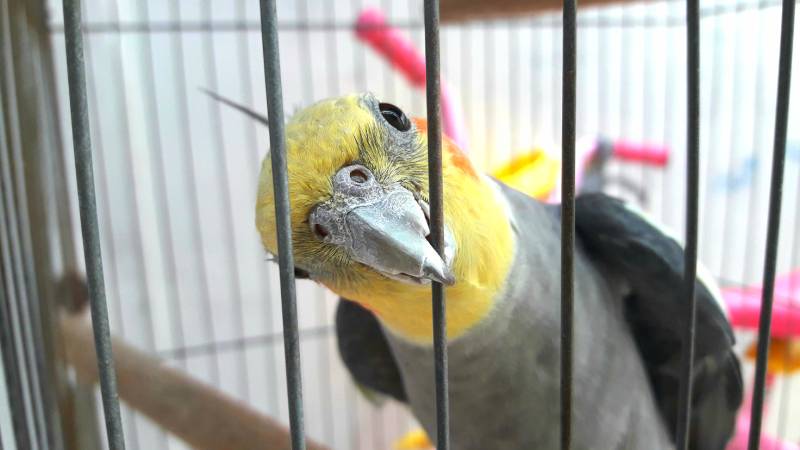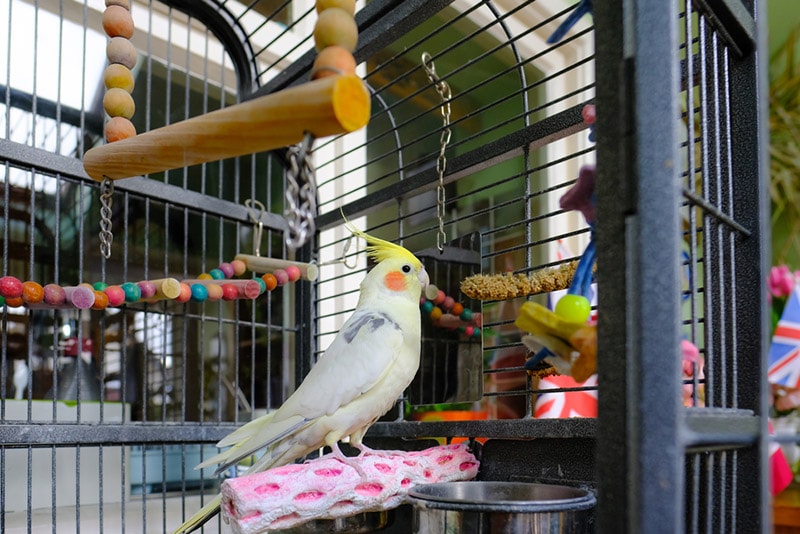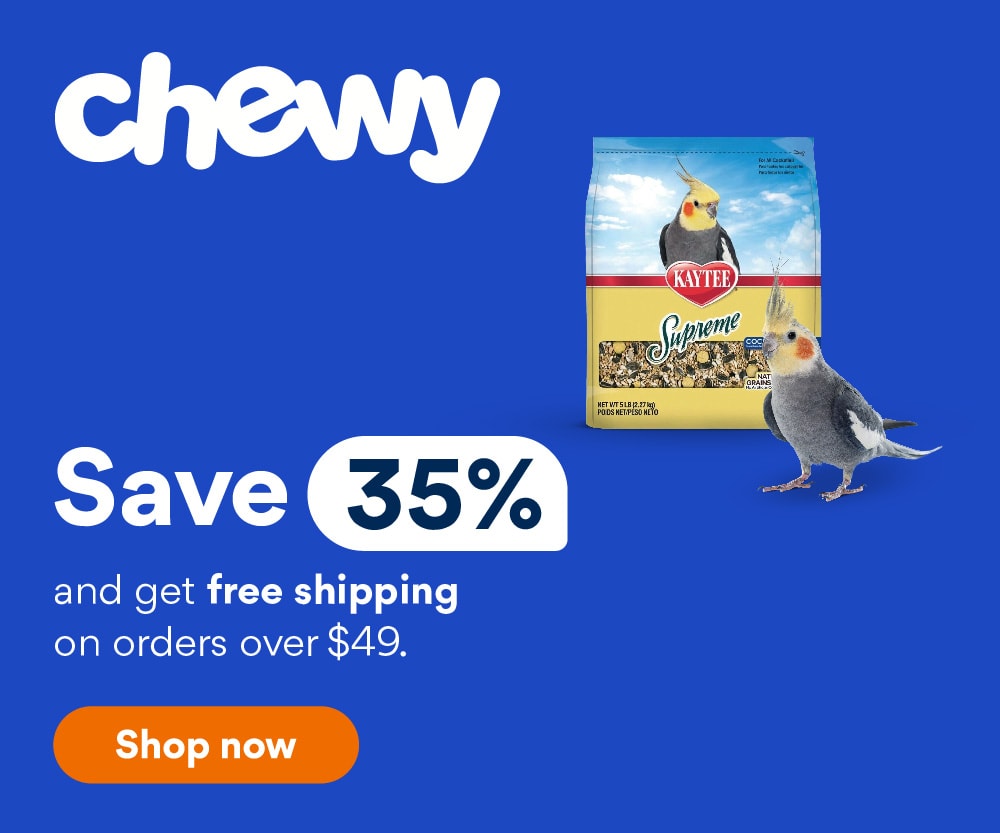What Does a Cockatiel Need in Their Diet? 7 Vet Approved Foods
Updated on
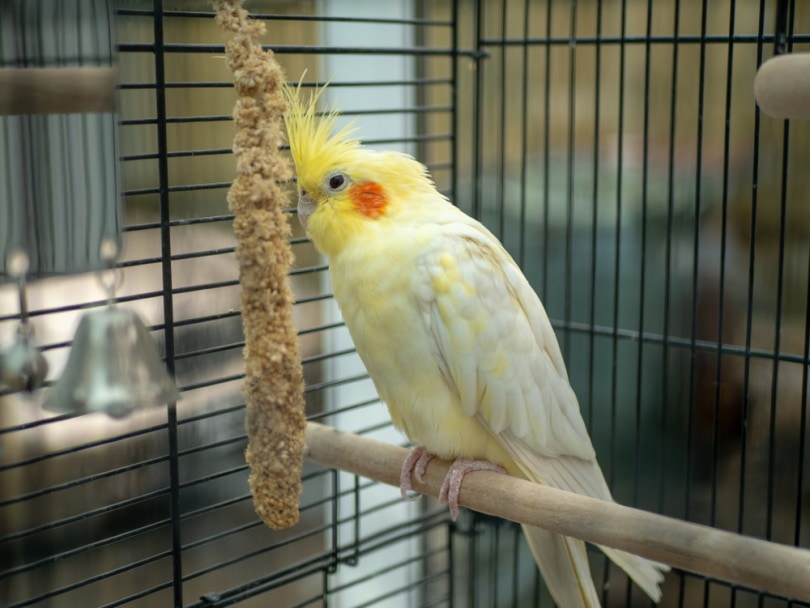
Cockatiels are gentle and docile birds known for their affectionateness and ability to bond with humans. For that reason, they make fantastic companion pets. However, if you’re considering adding a cockatiel to your family, you must first familiarize yourself with every aspect of bird husbandry.
One of the most important things to educate yourself on is the cockatiel diet. It’s not excessively complicated, but opting for the wrong foods can cause malnutrition and even a shortened lifespan.1
Keep reading to find everything you must include in your pet bird’s diet, as well as several foods you must avoid at all costs.
The 7 Foods a Cockatiel Need in Their Diet
1. Pellets
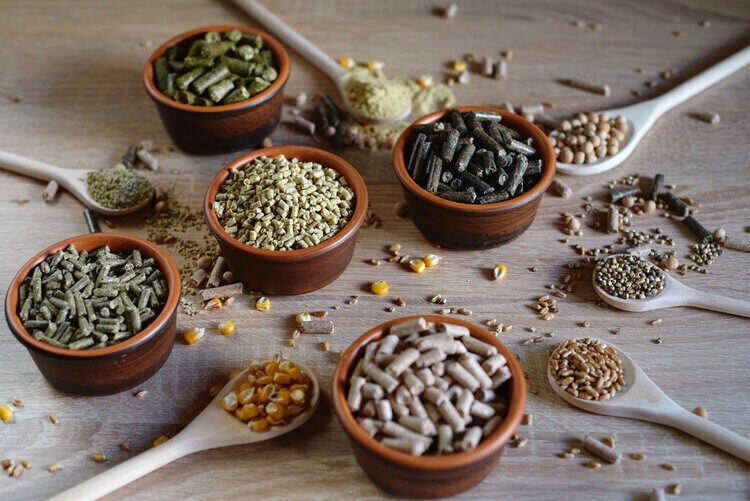
All pet birds, including cockatiels, should have a diet of mostly pellets. They should represent between 75% and 80% of a cockatiel’s diet. Keep the food bowl three-quarters full and replenish it daily.
Pellets are a commercially formulated food that meets your bird’s unique nutritional needs. Different pellet recipes exist for every bird species, so make sure you’re offering your pet a cockatiel-specific option.
It’s easiest to get hand-raised baby cockatiels started on a pelleted diet as it’ll be all they’ve ever known. Mature birds, however, can be quite stubborn to any diet changes, especially switching from an all-seed diet to pellets.
Pellets are the ideal diet, however, so you must put in the effort to wean seed eaters slowly onto a pelleted diet. Seeded diets can cause malnutrition, which may present as poor feather quality, liver failure, brittle bones, and a shortened lifespan for your pet.
2. Fresh Vegetables
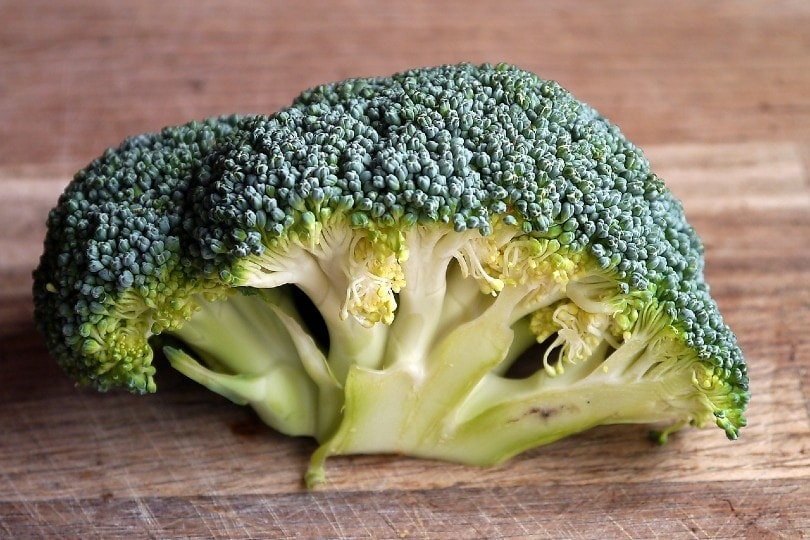
Vegetables should comprise no more than 20% of a cockatiel’s diet. Pale veggies high in water (e.g., iceberg lettuce) offer little to no nutritional value, so it’s best to opt for more nutritious dark, leafy greens instead. The healthiest vegetables to provide a cockatiel include:
- Broccoli
- Kale
- Spinach
- Mustard green
- Carrots
- Sweet potatoes
- Beet greens
- Sprouts
- Pumpkin
Most veggies are best raw, though most cockatiels will prefer pumpkin and sweet potatoes cooked. All vegetables must be washed thoroughly before serving to remove any chemical residue.
3. Fresh Fruit
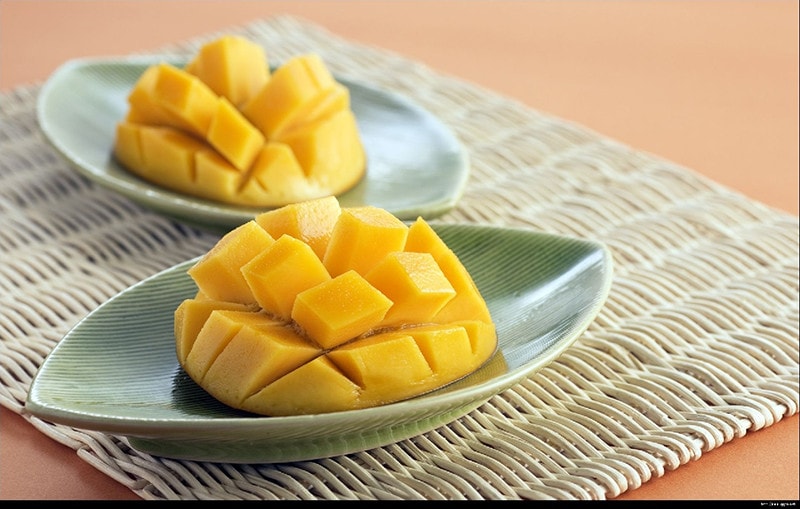
Fruit is a healthy and tasty treat to offer your cockatiel occasionally. However, fruit should make up no more than 5% of your bird’s daily diet.
Cockatiels enjoy almost every type of fruit, but make sure any fruit seeds are removed before serving. Some contain cyanide, a toxic element that can be dangerous for birds.
Some of the best fruit options to offer your cockatiel include:
- Mangos
- Apples
- Papayas
- Bananas
- Blueberries
- Oranges
- Cantaloupes
- Apricots
As with veggies, ensure all fruit is thoroughly washed before serving.
4. Seeds

Seeds are highly palatable, which makes them very popular with pet birds. Nutritionally, however, they do not have much to offer.
Seeds can be given to your cockatiel occasionally as a treat but should never be your pet’s entire diet. The fewer seeds you offer, the more likely it is you’ll find your bird more open to trying fruits and veggies.
Approximately 1.5 tablespoons of seeds per day would be more than enough.
5. Protein
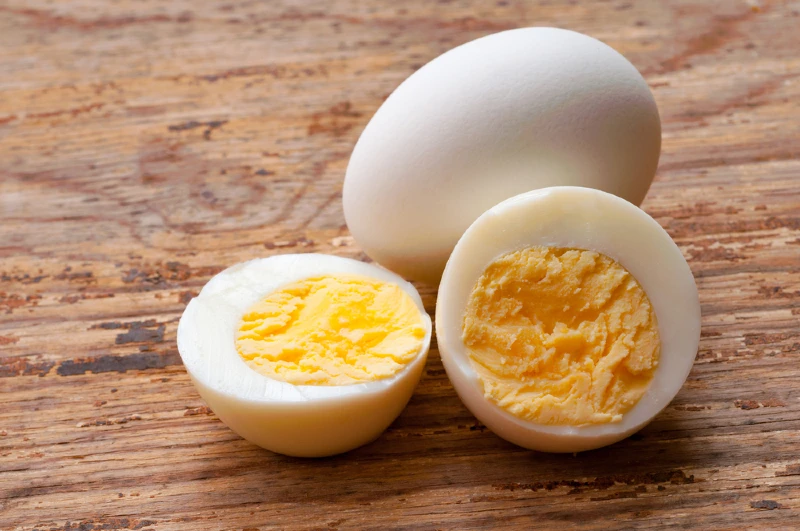
All the protein your cockatiel needs will come from its pellets, but some cockatiels occasionally enjoy small amounts of lean, cooked meats or fish. You can even offer other human foods like boiled or scrambled eggs, yogurt, or cottage cheese as a treat from time to time.
6. Cuttlebone
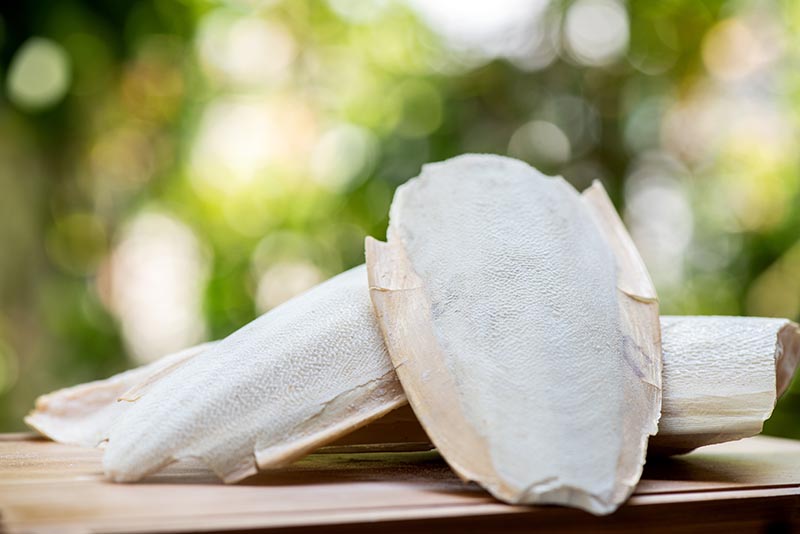
Cuttlebone is a great source of minerals like calcium and phosphorus that are necessary for healthy bones and feathers.
Pet stores sell cuttlebone in lightweight, oblong forms that attach to the side of the cage. Unfortunately, some birds don’t take to it at all, so you may find your cockatiel is turning its nose up at your cuttlebone. If this is the case, you can use a sharp knife to scrape along the cuttlebone, creating a powder you can sprinkle onto the pellets.
7. Water
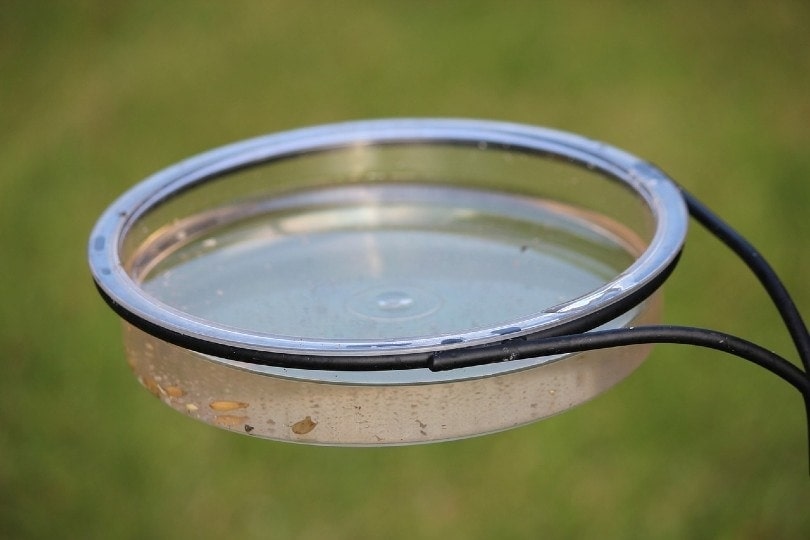
Water is the source of all life, so it shouldn’t be surprising that your cockatiel needs it to survive.
Water bowls must be changed daily to ensure your pet has constant access to fresh and clean water. In addition, cockatiels love to toss their food around, so some of it will inevitably end up in the water bowl. Change the water as soon as you see that it is dirty.
What Shouldn’t Cockatiels Eat?
There are several toxic foods that you should never offer your cockatiel. These include items such as:
- Avocados
- Onions
- Salty food
- Chocolate
- Caffeine
- Fruit pits
- Fruit seeds
- Garlic
- Xylitol
- Comfrey
Related Read: Diarrhea in Cockatiels: Causes & Solutions
What Do Cockatiels Naturally Eat?
Cockatiels in the wild eat a varied diet of seeds, fruits, berries, and vegetation. The seeds they eat will depend on the season, but the most favored options are acacia, wheat, sunflower, and sorghum.
Final Thoughts
The cockatiel diet isn’t a complicated one. If your bird has access to pellets, water, fresh fruit, and veggies, it’ll be fine. However, you may need to do some trial and error to find produce your bird is interested in eating, as they can be notoriously fickle little critters when trying new foods.
See Also: How Much Does a Cockatiel Cost? One-Time & Recurring Expenses
Featured Image Credit: Vantage_DS, Shutterstock



